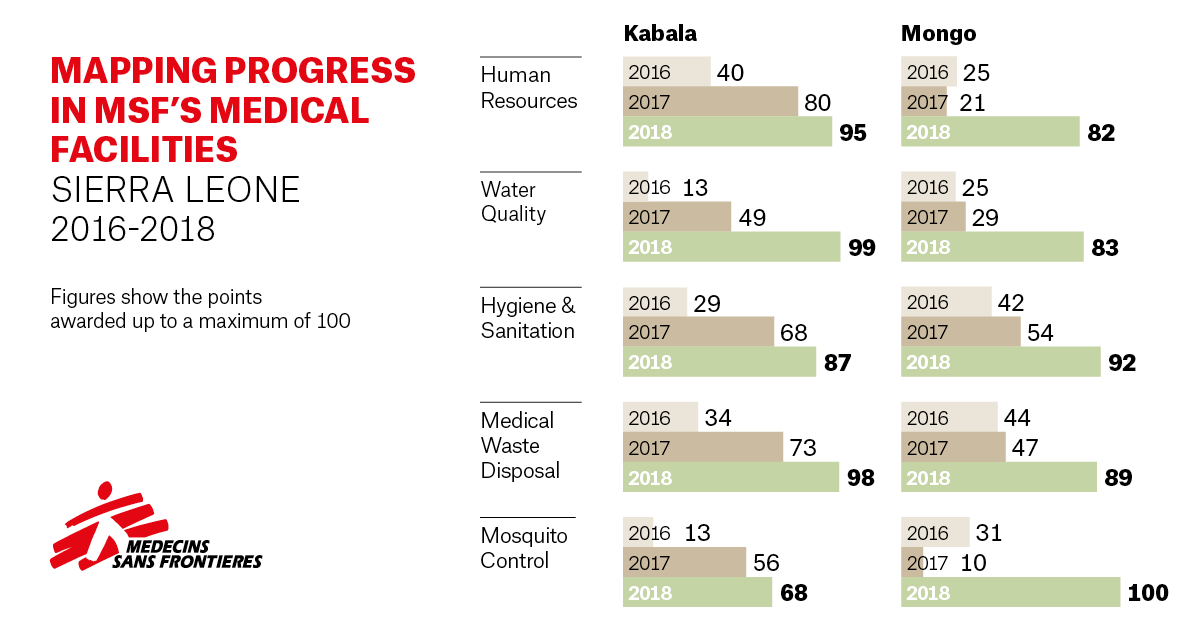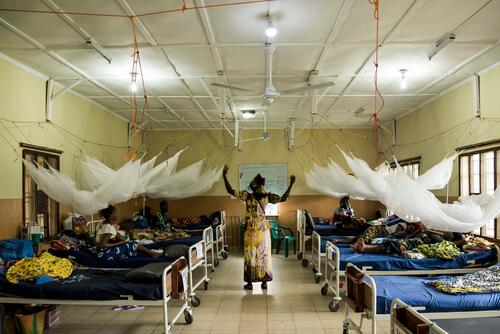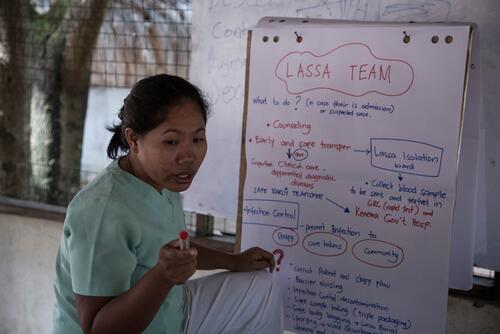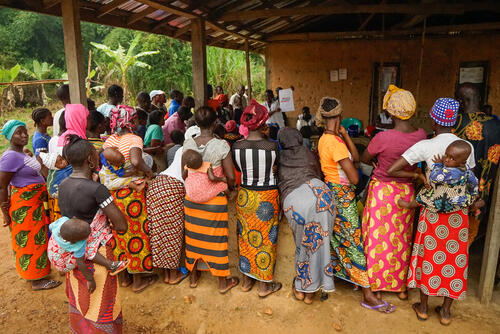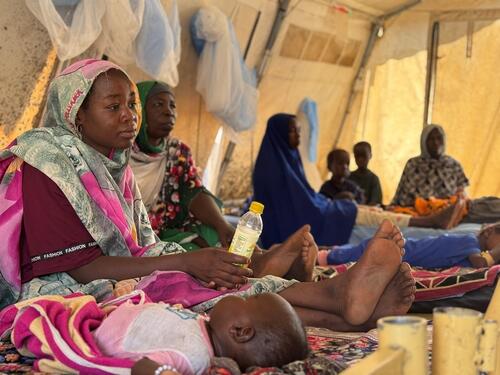Paul Jawor, an MSF water and sanitation (WATSAN) expert based in Barcelona, has been working on the post-Ebola response in Sierra Leone since 2016. His role is to ensure that MSF’s approach to water, sanitation and hygiene is up to standard.
Here, Paul recounts the progress he has seen in the Mongo and Kabala regions in the north of the country over the last three years.
I visit MSF’s projects in Sierra Leone, in the Mongo and Kabala regions in the north of the country, at roughly the same time each year. Since 2016, part of my work has been to ensure that we are reaching the right standards in water and sanitation.
2016
When I first visited at the beginning of the mission in 2016, the conditions were really bad. There was no clean water, and there wasn’t enough of the little water that was available.
There was no separation of medical waste, which is a big problem, as it means that potentially dangerous items like needles are not disposed of correctly. And there were animals – goats, dogs, chickens – running around the hospital!
The deadly Ebola outbreak of 2014-2015 led to many of medical staff either fleeing or falling victim to the disease. Of 1,100 health workers in Sierra Leone, over 300 were infected with Ebola, and many medical facilities were dangerously understaffed.
Services were collapsing, especially in the northern region which was one of the locations Ebola had first appeared in the country.
In the town of Kabala, we wanted to help support the failing medical facilities, especially maternity and pediatrics departments, so we began to support the hospital in Koinadugu as well as some peripheral medical centres and health posts in Mongo.
In the first year, the reality was that WASH [water, sanitation and hygiene] standards were much lower than was acceptable – medical facilities should be achieving a score of 100 to show that they meet the necessary standards for good sanitation and hygiene, and Mongo and Kabala scored 30 and 28 respectively. There was a lot of room for improvement.
2017
When I returned in 2017, there had been a remarkable improvement. The waste management area had been set up and handwashing points were ready. Staff had some proper protective equipment in case of the emergence of highly contagious diseases like Ebola.
The team was well on the way to finishing the replacement of water pipes feeding the MSF-supported medical structures to supply clean water and reduce waste. There were 48 trained hygienists working in the structures.
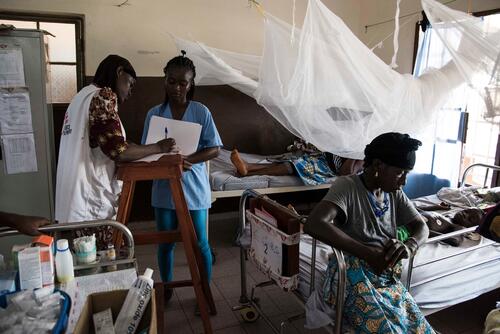
2018
In 2018 there was even further improvement, even though the biggest jumps in standard had been done the previous year. The waste management area had been completed and waste was being separated and disposed of correctly.
We had worked on the two boreholes to improve the water supply and were directly injecting chlorine into all the water supply to ensure that it was suitable for drinking.
For vector control – that is limiting the spread of disease through mosquitos, rats, dogs and so on – there was also progress. Each bed had a mosquito net, there were screens on the windows to prevent them entering the wards, and most importantly, there were no more goats and dogs inside the buildings!
It was great to see these improvements so clearly evolving gradually every year, and to know that by raising these standards we were ensuring that fewer people would leave medical facilities with new infections.
We also learnt important lessons that we will be able to take forward both within and outside of Sierra Leone, like in the recent case of the emergence again of Ebola in the Democratic Republic of Congo.
If we need to respond to an emergency again, here in Sierra Leone, we will be able to start from an even higher level.
